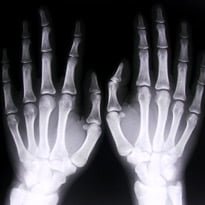A project giving patients online access to their radiology images shows that a patient-centred image sharing arrangement can work, delegates to the Radiological Society of North America conference in Chicago heard on Monday.
William Heetderks, associate director of science programmes at the National Institute of Biomedical Imaging and Bioengineering, presented about the goals of the Image Share project.
This began in September 2009 when the RSNA was awarded a two-year $4.7 million contract by the NIBIB to explore the use of IHE open standards for sharing images and reports. The funding was later extended for another four years.
Phase one of the project involved giving patients web-based access to their own images via personal health record accounts. In phase two, the network was expanded to support direct transfer between sites for clinical and research images, with four sites taking part.
Heertdecks said the project demonstrates that a patient-centred system is feasible:
“Images are transferred to individuals and they can have control of those images and distribute them to others,” he said.
Patients access their account securely via a browser. If they want to share their images with another physician, they can authenticate the physician remotely and send a link to the physician, or download the data set and email it.
Heertdecks said some patients had even shared their images on Facebook.
He explained that two kinds of patients had signed up for the project: people who are “shopping around for care and go anywhere they think they can get a good result” and “a young group who do everything else on the internet so why not this".
Dr Richard Ruchman, chair of radiology at Monmouth Medical Centre, which participated in phase two the project, said that much of the first year had been taken up with resolving legal issues relating to privacy.
It was essential to get buy-in from the hospital chief executive and other senior people as well as patients, he said. One employee had worked hard to recruit patients to sign up to the project, persuading them of the benefits.
“Patients think it’s great. The patient adopter experience has been fantastic,” said Dr Ruchman.
David Mendelson, professor of radiology at Mount Sinai Medical Centre, told delegates that RSNA provides participating organisations with the server and the software application, as well as the services of a senior implementation manager.
Traditionally, physicians have shared images on CD, sometimes resulting in lost or damaged data. Some picture archiving and communications systems vendors store images in proprietary format that can only be viewed in their systems, he explained.
There have been no decisions made about how the project will continue when the funding runs out. However, other funding mechanisms are being considered, said Mendelson.
Imaging Informatics editor Kim Thomas is reporting from the Radiological Society of North America annual conference in Chicago, USA, this week. You can contact her on kimthomas@e-health-media.com.

